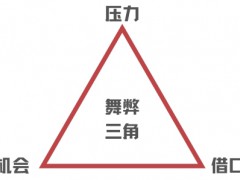由于征收暴利稅,石油巨頭正在考慮改變他們在歐洲的戰(zhàn)略
石油巨頭希望在上游石油和天然氣上投入更多,但需要對其產品的長期需求才能做到這一點
油氣投資不足可能會對整個石油市場產生嚴重后果
據(jù)油價網2023年3月12日報道,埃克森美孚公司正在考慮改變其在歐洲的戰(zhàn)略,因為歐盟各國政府正在征收暴利稅,以獲取石油巨頭從去年石油和天然氣價格上漲中獲得的部分利潤。殼牌公司警告稱,歐洲在能源安全方面不應再指望運氣,歐洲應投資建設新的天然氣基礎設施,以彌補失去的天然氣供應。殼牌公司新任首席執(zhí)行官瓦埃爾·薩旺表示,依靠運氣并不是一個好策略。
雪佛龍公司和塔洛斯能源公司更新了他們在得克薩斯州建立碳捕獲和存儲中心的計劃。他們現(xiàn)在盯上了一個三倍于最初設想容量的設施。
所有石油巨頭都在敦促各國政府促進氫氣工業(yè)的發(fā)展,特別是利用核能、風能和太陽能生產低碳氫氣。
這只是本周從在休斯敦舉行的劍橋能源周(CERAWeek)會議上傳出的一部分消息。每年,油氣行業(yè)高管和其他決策者都會聚集在這里,討論能源、政治和未來。目前還沒有討論的是投資更多這些公司的核心業(yè)務。
CERAWeek的總結是:“從石油行業(yè)的角度來看,市場投資不足,需要投入更多,不是我們,但肯定是其他人,我有沒有提到我們在氫氣和碳捕獲方面所做的事情? ”
這條由標普全球商品洞察能源和自然資源部門主管卡利姆·法瓦茲發(fā)布的推文,似乎非常簡潔地總結了目前全球石油和天然氣行業(yè)的現(xiàn)狀。
生產商,即使是最大的生產商,似乎也在左右為難,一方面是根據(jù)政府的壓力改變商業(yè)戰(zhàn)略方向,另一方面是堅持核心業(yè)務。去年核心業(yè)務為生產商帶來了創(chuàng)紀錄的利潤。在他們陷入困境的同時,他們向股東分配了數(shù)千億美元。
《華爾街日報》本周援引哥倫比亞大學全球能源政策中心公布的數(shù)據(jù)報道稱,去年石油行業(yè)以股息形式發(fā)放的資金總額達到1700億美元,股票回購耗資1400億美元。
同年的投資總額達到3100億美元,相當于股息和股票回購的資金總和。這個數(shù)字可能看起來很可觀,但正如《華爾街日報》所指出的那樣,如果石油公司在分紅和回購方面不那么慷慨的話,這個投資數(shù)字本可以達到5800億美元。
問題在于,似乎沒有人確定它是否值得更多投資——至少在公開場合是這樣。殼牌公司首席執(zhí)行官薩旺、埃克森美孚公司首席執(zhí)行官伍茲、雪佛龍公司首席執(zhí)行官沃思和英國石油公司首席執(zhí)行官魯尼很可能清楚地意識到,為了滿足當前和未來的需求,世界需要對石油和天然氣進行更多的投資。然而,來自政府和維權股東們要求停止生產更多石油和天然氣的壓力,與全球能源需求的現(xiàn)實背道而馳。
這種壓力——以及相關的立法和法院裁決——正在做出在歷史上任何時候都是最簡單、最明顯的決定,但現(xiàn)在卻變得困難和危險。
此外還有意外獲利因素,這進一步阻礙了石油和天然氣生產商去做顯而易見的事情。因此,石油公司并沒有做出現(xiàn)實要求的決定,相反,他們選擇在很大程度上只是在口頭上支持這種轉型。
沃思在CERAWeek會議上說:“你必須非常小心,不要過早關閉系統(tǒng)A。”系統(tǒng)A——他指的是從化石燃料轉向替代燃料。
魯尼兩年前曾熱情地接受轉型,但現(xiàn)在他承認,公司向可再生能源的轉型并沒有如預期的那樣產生效果,并表示,更多的石油和天然氣投資將有利于轉型。
這位英國石油公司高管在最近的國際能源周會議上表示:“減少供應而不同時減少需求,不可避免地會導致價格飆升,價格飆升導致經濟波動,而這種波動可能會削弱民眾對轉型的支持。”
薩旺則直接表示,現(xiàn)在削減石油和天然氣產量是不明智的。在接受英國時代廣播電臺記者采訪時,這位殼牌公司高管表示:“我堅信,世界在未來很長一段時間內都將需要石油和天然氣。因此,削減油氣產量是不明智的。”
也許這種敢于陳述顯而易見事實的新勇氣遲早會帶來投資決策的勇氣。問題在于,根據(jù)歐佩克官員和國際能源分析人士的說法,石油市場的平衡已經因投資不足而受到損害,供應短缺可能只是時間問題。
李峻 編譯自 油價網
原文如下:
Big Oil Is Flush With Cash, But Doesn’t Know Where To Spend it
· Oil majors are considering a change in strategy for Europe because of windfall taxes.
· Oil majors want to spend more on upstream oil and gas, but need long-term demand for their products in order to do so.
· Underinvestment in oil and gas may have serious consequences for the oil market in general.
Exxon is considering a change of strategy for Europe because of the windfall taxes governments are using to get some of the money Big Oil made from last year's oil and gas price rally. Shell is warning that Europe should stop relying on luck with its energy security and invest in new gas infrastructure to replace lost Russian supply. Relying on luck, according to CEO Wael Sawan, is not a good strategy.
Chevron, along with Talos Energy, have updated their plans for a carbon capture and storage hub in Texas. They are now eyeing a facility three times as large as the original idea.
All oil majors are urging governments to facilitate the development of a hydrogen industry, especially the production of low-carbon hydrogen from nuclear and wind and solar.
This is just a portion of the news coming out this week from Houston, where the industry and other decision-makers gather every year to discuss energy, politics, and the future. What does not seem to be on the table is talk about investments in more of these companies' core businesses.
"Summary of CERAWeek from an oil industry perspective: 'The market is underinvested, someone needs to invest more, not us but definitely someone else, have I mentioned what we're doing on hydrogen and carbon capture?'"
This tweet, by S&P Global Commodity Insights' Energy and Natural Resources group director Karim Fawaz, seems to summarize quite succinctly the state of affairs in the oil and gas industry right now.
Producers, even the biggest ones, appear torn between changing the direction of their business strategy in line with government pressure and sticking to their core business, which brought them record profits last year. And while they are torn, they distributed hundreds of billions of dollars to shareholders.
The total amount of money that the oil industry distributed as dividends last year hit $170 billion, with share buybacks costing another $140 billion, the Wall Street Journal reported this week, citing data from Columbia University's Center on Global Energy Policy.
Investments in the same year amounted to $310 billion—an amount equal to that distributed as dividends and buybacks combined. The sum may look impressive, but it's not, as the WSJ points out, the $580 billion it could have been if oil companies had been less generous with dividends and buybacks.
The problem is that nobody appears to be certain it is worth investing more—not publicly, at least. It is quite likely that Shell's Sawan, Exxon's Woods, Chevron's Wirth, and BP's Looney, are well aware that the world needs more investments in oil and gas in order to meet current and future demand. Yet that pressure from governments and activist shareholders to not produce more oil and gas is countering the reality of global energy demand.
That pressure—and associated legislation and court decisions—are making decisions that at any other time in history would have made the simplest and most obvious sense seem difficult and risky.
There's also the windfall profit element, which has further discouraged oil and gas producers from doing the obvious thing. So oil companies are not making the decisions that reality dictates, instead opting for largely paying lip service to the transition.
For all that confusion, with governments telling the oil and gas industry they need to produce more—but just for a short while because we are transitioning away from fossil fuels—while taxing them additionally because of high oil and gas prices, there is a silver lining. The industry is becoming bolder in stating the obvious.
"You have to be very careful about switching off system A too early," Chevron's Mike Wirth said at CERAWeek, referring to the switch from fossil fuels to alternatives.
BP's Bernard Looney, who had embraced the transition enthusiastically two years ago, now admits the company's shift to renewables did not pay off as expected and says that the transition would benefit from more oil and gas investment.
"Reducing supply without also reducing demand inevitably leads to price spikes, price spikes lead to economic volatility, and there's a risk that volatility will undermine popular support for the transition," the executive said at the recent International Energy Week.
Shell's Sawan, for his part, said outright that cutting the production of oil and gas now is not healthy. In an interview for British Times Radio, the executive said, "I am of a firm view that the world will need oil and gas for a long time to come. As such, cutting oil and gas production is not healthy."
Perhaps this newfound courage to state the obvious may sooner or later lead to courage in investment decision-making. The problem is that, according to OPEC officials and international energy analysts alike, the balance in the oil markets is already compromised by underinvestment, and the shortage may be just a matter of time.
免責聲明:本網轉載自其它媒體的文章及圖片,目的在于弘揚石化精神,傳遞更多石化信息,宣傳國家石化產業(yè)政策,展示國家石化產業(yè)形象,參與國際石化產業(yè)輿論競爭,提高國際石化產業(yè)話語權,并不代表本網贊同其觀點和對其真實性負責,在此我們謹向原作者和原媒體致以崇高敬意。如果您認為本站文章及圖片侵犯了您的版權,請與我們聯(lián)系,我們將第一時間刪除。







